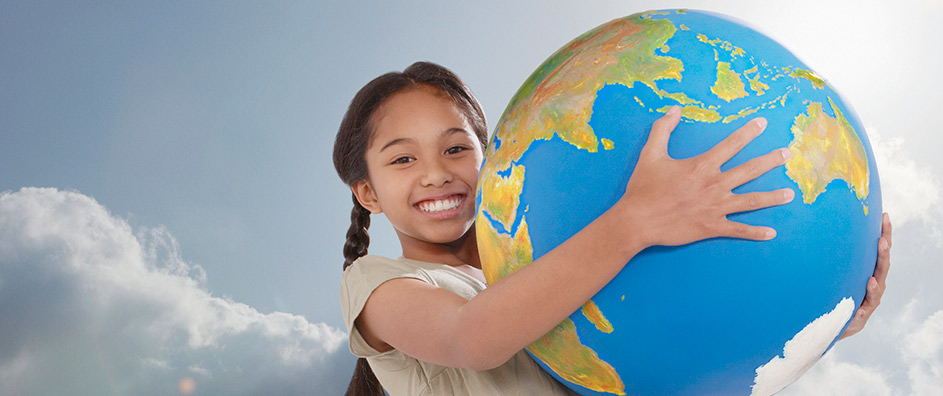As we navigate the complexities of modern life, it is incumbent upon us to consider the foundational principles that will equip future generations to thrive in a multifaceted world. Within the Bahá’í teachings, a profound emphasis is placed on the moral and spiritual development of children. This article delves into the essential actions and mindsets that can substantially contribute to a brighter future for our children, urging readers to embrace a transformative perspective.
First and foremost, it is vital to cultivate an atmosphere of love and understanding within the family unit. Compassionate communication, characterized by empathy and active listening, fosters emotional intelligence in children. When children are raised in nurturing environments, they develop secure attachments that anchor their sense of identity and belonging. This underpins their ability to forge meaningful relationships and navigate societal challenges with resilience.
Furthermore, instilling ethical values becomes paramount. The Bahá’í teachings emphasize virtues such as honesty, kindness, and justice. Through consistent practice and positive reinforcement, these virtues can become ingrained in a child’s character. Parents and caregivers should model these principles in their daily lives, demonstrating ethical decision-making during moments of adversity. This real-life application reinforces the importance of moral integrity, providing children with a guiding compass as they encounter the complexities of life.
Another crucial aspect lies in fostering a spirit of service. The Bahá’í writings advocate for the principle of service to humanity. Engaging children in acts of altruism not only cultivates empathy but also instills a sense of social responsibility. This can be achieved through community service projects, encouraging children to recognize their capacity to effect positive change. By understanding the interconnectedness of humanity, children will develop a nurturing attitude toward others and a commitment to the collective well-being of society.
The realm of education also warrants significant attention. Adopting a holistic approach to education, one that transcends mere academic achievement, is vital. This involves nurturing creativity and critical thinking alongside intellectual development. The Bahá’í perspective advocates for an education that harmonizes scientific and spiritual principles. Such an approach empowers children to explore the natural world while remaining attuned to their spiritual essence. Therefore, parents should seek educational opportunities that cultivate both the mind and spirit, encompassing arts, sciences, and ethical education.
Additionally, cultivating a global perspective is essential in an increasingly interconnected world. Children must be encouraged to appreciate diversity and the richness of various cultures. This can be achieved through exposure to different traditions, languages, and worldviews. By fostering open-mindedness and respect for others, we equip children with the tools necessary to navigate global challenges collaboratively. Understanding that humanity is one vast family transcends national boundaries, urging children to act with empathy and solidarity toward all peoples.
The significance of resilience cannot be overstated. As children grow, they will inevitably encounter obstacles and setbacks. Instilling a growth mindset—where failure is viewed as an opportunity for learning—can significantly bolster their ability to cope with adversity. The teachings emphasize the power of perseverance. By reframing challenges as stepping stones toward personal growth, children can develop the tenacity required to pursue their goals, regardless of the hurdles they may face.
Moreover, fostering spiritual development is indispensable. Encouraging children to engage in practices such as prayer, reflection, and meditation nurtures their inner lives, helping them to establish a profound sense of purpose. As they cultivate a connection with the divine, children learn to navigate life’s uncertainties with faith and assurance. This spiritual grounding equips them to face moral dilemmas and make decisions aligned with their core values.
Furthermore, fostering creativity and innovation plays a pivotal role in shaping a child’s future. Encouraging children to express themselves through artistic endeavors and imaginative play stimulates cognitive development and cultivates problem-solving skills. The encouragement of creative thinking enables children to approach situations with originality and inventiveness, qualities that will serve them well in an ever-evolving landscape. Thus, providing opportunities for exploration, experimentation, and creative expression is essential for holistic development.
Lastly, we must encourage constructive dialogue within the home and broader community. The Bahá’í principle of consultation embodies this approach, promoting a culture of open discourse where varying perspectives are welcomed and valued. Teaching children the importance of dialogue equips them with the ability to articulate their thoughts clearly, listen actively, and engage respectfully with differing viewpoints. These skills cultivate a generation of leaders who can navigate complexity with grace and facilitate collaborative solutions.
In conclusion, the best thing we can do for our children’s future is to provide them with a multifaceted foundation grounded in love, ethical values, and a commitment to service. By fostering emotional intelligence, resilience, creativity, and spiritual awareness, we equip the next generation with the tools needed to navigate the myriad challenges they will encounter. Embracing these teachings not only promises to enhance individual lives but contributes to the flourishing of society as a whole. With a united effort, we can ensure that our children are not just survivors in a changing world, but thriving architects of a more just and compassionate future.
